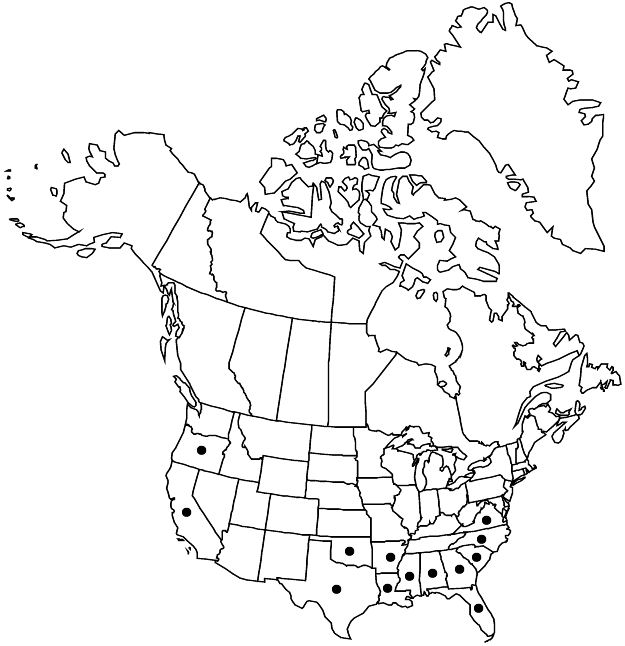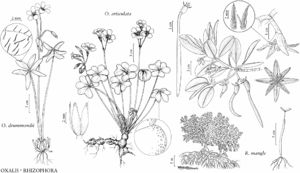Oxalis articulata
Encycl. 4: 686. 1798.
Herbs perennial, acaulous, rhizomes present, thick, woody, irregularly nodulate-segmented, often covered with persistent petiole bases, stolons absent, bulbs absent. Leaves basal; petiole 11–30 cm; leaflets 3, green to purplish abaxially, green adaxially, rounded-obcordate, 18–20 mm, margins densely loosely ciliate, lobed 1/5–1/3 length, lobes apically convex, surfaces evenly strigose-villous to strigose-hirsute, oxalate deposits in dots concentrated mostly toward margins or over whole surface. Inflorescences usually umbelliform cymes, less commonly in irregular cymes, 3–12-flowered; scapes 12–28 cm, sparsely strigose. Flowers heterostylous; sepal apices with 2 orange tubercles; petals usually purplish rose to red, rarely white, 10–14 mm. Capsules ovoid, 4–8 mm, sparsely strigose. 2n = 42.
Phenology: Flowering Mar–Jul.
Habitat: Disturbed places, especially near gardens, lawns, fields, roadsides.
Elevation: 0–250 m.
Distribution

Introduced; Ala., Ark., Calif., Fla., Ga., La., Miss., N.C., Okla., Oreg., S.C., Tex., Va., South America (Argentina), South America (Brazil), South America (Uruguay), also in Europe, Pacific Islands (New Zealand), Australia
Discussion
Oxalis articulata in the United States commonly has been identified as O. rubra. Oxalis rubra was treated at subspecific rank by A. Lourteig (1982), but subsp. articulata and subsp. rubra have essentially the same native range and occur in similar habitats. Lourteig identified both subspecies in the United States, noting in her key that vestiture is reduced and the sepals are broader in subsp. rubra. Evidence is weak for recognizing more than a single entity. In the Flora of Panama (Lourteig 1980), she recognized only O. articulata, noting that it is naturalized in other parts of America and in the Old World.
Selected References
None.
Lower Taxa
"alternating" is not a number."/5" is not declared as a valid unit of measurement for this property."thick" is not a number.
